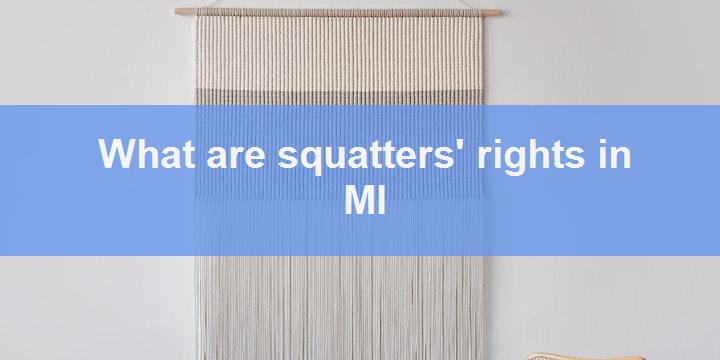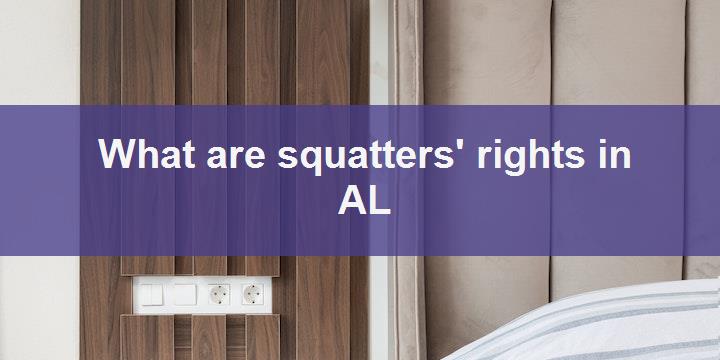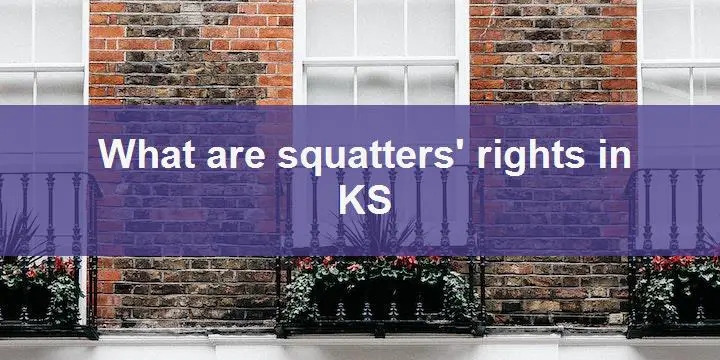What are squatters’ rights in Michigan?
Firstly, it is important to understand what squatters’ rights are. Essentially, they are legal protections for individuals who have been occupying a property without ownership or lease rights. In Michigan, these rights can vary depending on the circumstances of the situation. Additionally, squatters may be able to claim adverse possession, which is the legal recognition of their right to the property after a certain period of time. However, it is crucial to note that the laws surrounding squatters’ rights can be complex and are subject to change. Thus, it is advisable to consult with a legal professional if you are facing a situation involving squatters and their rights in Michigan.
What is the squatting/squatter?
Squatting is the act of occupying an abandoned or unused property without the owner’s permission. Squatters usually do so to find a shelter or a place to live. Consequently, squatting can be a controversial topic. There are different reasons why people engage in squatting, including financial problems, homelessness, and political beliefs. It is important to mention that, regardless of their reasons, squatting is illegal in most countries. The squatters can be evicted by the authorities or the property owner at any time. An example of squatting could be a group of homeless individuals occupying an abandoned building to have shelter during winter.
What is Adverse posession in Michigan?
Adverse possession in Michigan refers to a legal concept that allows a person to gain ownership of a property that they do not hold the title to. This concept comes into play when a person uses the property of another person without their permission continuously for a certain period of time. In Michigan, adverse possession can only be claimed if certain conditions are met, such as the person occupying the property openly and continuously for at least 15 years. Furthermore, the owner of the property must not have taken any action to evict the person during this time period. It’s important to note that adverse possession should not be confused with squatting, which is an illegal activity.
Is it legal to squat in Michigan?
At first glance, squatting in Michigan may seem like a tempting option for those in need of a place to live. However, it is important to consider the legality and potential consequences of such an action. Firstly, squatting is not a legal way to obtain housing in Michigan. Additionally, it is important to be aware that squatting can result in financial penalties, as well as eviction and legal consequences. Therefore, it is advisable to explore more legitimate options for acquiring housing in Michigan, such as renting or purchasing a home, to avoid legal issues and ensure one’s safety and stability.
Can police remove squatters in Michigan?
Firstly, it’s important to note that Michigan law does allow police to remove squatters from a property, but the process can be somewhat complicated. If the property owner has proof of ownership and provides the police with written authorization to remove the squatters, then law enforcement can legally remove them. However, if the squatters have established residency in the property and can provide some proof of residency, such as mail delivery or utility bills, the eviction process may be necessary. In this case, the property owner must file an eviction lawsuit in court, and the court will issue an order for the removal of the squatters. Transition words such as “firstly” and “however” can help to break up the information and make it easier to understand for blog visitors.
How to evict squatter in Michigan?
Firstly, it’s vital to understand that squatters are not tenants and don’t have the same rights as tenants do in Michigan. Therefore, eviction laws for squatters are different. Secondly, before any legal action, attempt to clear the matter outside the court as much as possible. Talk with the squatter to vacate the property or negotiate some other arrangement. However, if the squatter refuses to vacate, a formal eviction notice must be served, and the Michigan State laws must be followed. It is important to note that the court process can become lengthy and complicated, but it’s necessary to follow the legal procedures to avoid any legal action taken against you. Lastly, once the court gives its verdict, the landlord can seek police assistance to remove the squatter forcibly.
FAQ
Q: What are squatters’ rights in Michigan?
A: Squatters’ rights in Michigan refer to the legal doctrine of adverse possession. This means that if a person physically occupies a property that is not theirs and meets certain requirements such as the property being publicly accessible and the occupant being present for a certain amount of time, they may claim ownership of the property.
Q: How long does adverse possession take in Michigan?
A: Adverse possession in Michigan takes 15 years for vacant land and 7 years for land with a rightful owner.
Q: Do squatters have to pay property taxes in Michigan?
A: Yes, squatters have to pay property taxes in Michigan if they claim adverse possession of a property.
Q: Can squatters file for eviction of the rightful owner in Michigan?
A: No, squatters cannot file for eviction of the rightful owner in Michigan. Adverse possession is a civil matter, and if the rightful owner wants to regain possession of their property, they can go to court and file an ejectment action.
Q: Can a tenant in Michigan claim adverse possession if the landlord stops collecting rent?
A: No, a tenant in Michigan cannot claim adverse possession if the landlord stops collecting rent. Adverse possession requires open and hostile possession of a property without the owner’s permission.
Q: Can the rightful owner of a property in Michigan lose their rights if they abandon it?
A: Yes, if the rightful owner of a property in Michigan abandons it, someone else may claim adverse possession of it.
Q: Can a squatter sell the property they acquired through adverse possession in Michigan?
A: Yes, a squatter can sell the property they acquired through adverse possession in Michigan, but the rightful owner still holds title to the property, and the sale would be invalid.
Q: Can a squatter obtain a mortgage on the property they acquired through adverse possession in Michigan?
A: No, a squatter cannot obtain a mortgage on the property they acquired through adverse possession in Michigan, as they do not have legal ownership of the property.
Q: Can a property owner in Michigan take legal action against a squatter who takes over their property?
A: Yes, a property owner in Michigan can take legal action against a squatter who takes over their property through adverse possession. They can file an ejectment action to regain control of their property.
Also Reading
What is the average rent in Dothan?
Top neighborhoods in New Haven for families
IA squatters’ rights




